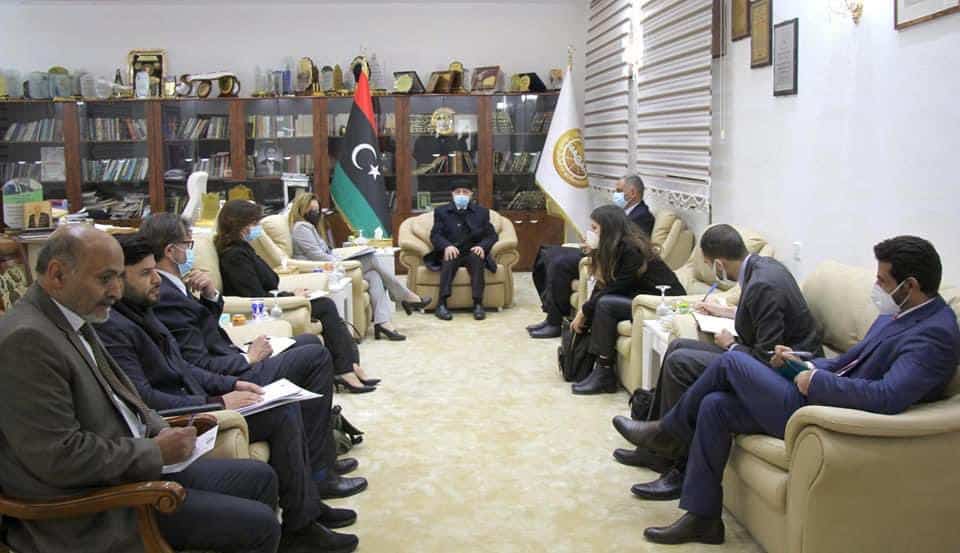War-torn Libya’s parliament rejects any “interference” in its work, its speaker told the UN envoy on Monday after she had offered to mediate in a push for elections.
Stephanie Williams, UN chief Antonio Guterres’s special adviser on Libya, had on Friday offered to host talks between the eastern-based legislature and institutions in the western capital Tripoli in a push for long-delayed polls.
She has also warned against an “escalation” after parliament appointed a new premier in a bid to oust the head of the unity government Prime Minister Abdulhamid Dbeibah, who has vowed only to hand power to an elected administration.
Meeting Williams on Monday, parliament speaker Aguila Saleh “rejected any interference in the decisions of the House of Representatives and stressed that they are not subject to ratification by anyone”.
In a statement on the parliament’s website, he stressed that “the appointment of a new government” was legal as that of Dbeibah had expired.
Construction tycoon Dbeibah was appointed following a landmark 2020 ceasefire with a mandate to lead the country to December 24 elections.
Sharp divisions over the legal and constitutional basis of the elections and the presence of controversial candidates including both Saleh and Dbeibah led to the vote being scrapped.
But Saleh has insisted that his rival’s mandate is up, and pushed forward with appointing ex-interior minister Fathi Bashagha to head a new government.
In order to overcome the impass and push for elections, Williams on Friday proposed a joint committee of members of the parliament and the High Council of State, a Tripoli-based upper house, to create “a consensual constitutional basis” for polls.
She tweeted Monday that she and Saleh had discussed the idea “in detail” and that she was looking forward to receiving nominations of delegates from both sides “in the coming days”.
3/2 أتفقنا على أن إجراء الانتخابات في الوقت المناسب وفق قاعدة دستورية سليمة هو السبيل الأمثل للمضي قدماً، ويعكس الطموحات الحقيقية للشعب الليبي، لا سيما 2.8 مليون ليبي تسجلوا للتصويت. pic.twitter.com/4DjhvdQ3i3
— Stephanie Turco Williams (@SASGonLibya) March 7, 2022
“We agreed that holding elections in a timely manner with a sound constitutional basis constitutes the best way forward, and reflects the genuine aspirations of the Libyan people, particularly the 2.8 million who registered to vote,” she said.
She also reiterated calls for calm and “the importance of cooperation between Libyan institutions for the sake of lasting stability”.
High Council of State head Khalid al-Mishri welcomed her offer providing it did not imply “interference”.
But in a letter to Williams on Sunday, 93 lawmakers rejected her offer as “sudden and unjustified”.







